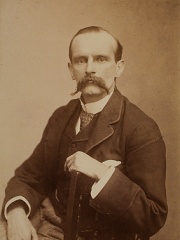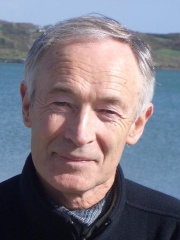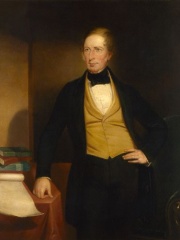



The Most Famous
EXPLORERS from India
Top 4
The following people are considered by Pantheon to be the most legendary Indian Explorers of all time. This list of famous Indian Explorers is sorted by HPI (Historical Popularity Index), a metric that aggregates information on a biography's online popularity.

1. Nain Singh (1830 - 1882)
With an HPI of 58.77, Nain Singh is the most famous Indian Explorer. His biography has been translated into 17 different languages on wikipedia.
Nain Singh Rawat (21 October 1830 – 1 February 1882), was one of the first Indian explorers (dubbed "pundits") employed by the British to explore the Himalayas and Central Asia. He came from the Johar Valley in Kumaon. He surveyed the trade route through Ladakh to Tibet, determined the location and altitude of Lhasa in Tibet, and surveyed a large section of Brahmaputra. His reports were initially made under the code name Number 9. He walked "1,580 miles, or 3,160,000 paces, each counted."

2. Frederick Lugard, 1st Baron Lugard (1858 - 1945)
With an HPI of 56.52, Frederick Lugard, 1st Baron Lugard is the 2nd most famous Indian Explorer. His biography has been translated into 25 different languages.
Frederick John Dealtry Lugard, 1st Baron Lugard (22 January 1858 – 11 April 1945), known as Sir Frederick Lugard between 1901 and 1928, was a British soldier, explorer of Africa and colonial administrator. He was Governor of Hong Kong (1907–1912), the last Governor of Southern Nigeria Protectorate (1912–1914), the first High Commissioner (1900–1906), the last Governor (1912–1914) of Northern Nigeria Protectorate and the first Governor-General of Nigeria (1914–1919).

3. Tim Severin (1940 - 2020)
With an HPI of 54.68, Tim Severin is the 3rd most famous Indian Explorer. His biography has been translated into 17 different languages.
Timothy Severin (25 September 1940 – 18 December 2020) was a British explorer, historian, and writer. Severin was noted for his work in retracing the legendary journeys of historical figures. Severin was awarded both the Founder's Medal of the Royal Geographical Society and the Livingstone Medal of the Royal Scottish Geographical Society. He received the Thomas Cook Travel Book Award for his 1982 book The Sindbad Voyage.

4. Charles Sturt (1795 - 1869)
With an HPI of 53.89, Charles Sturt is the 4th most famous Indian Explorer. His biography has been translated into 21 different languages.
Charles Napier Sturt (28 April 1795 – 16 June 1869) was a British officer and explorer of Australia, and part of the European exploration of Australia. He led several expeditions into the interior of the continent, starting from Sydney and later from Adelaide. His expeditions traced several of the westward-flowing rivers, establishing that they all merged into the Murray River, which flows into the Southern Ocean. He was searching to prove his own passionately held belief that an "inland sea" was located at the centre of the continent. He reached the rank of Captain, served in several appointed posts, and on the Legislative Council. Born to British parents in the Bengal Presidency, Sturt was educated in England for a time as a child and youth. He was placed in the British Army because his father was not wealthy enough to pay for Cambridge. After assignments in North America, Sturt was assigned to accompany a ship of convicts to Australia in 1827. Finding the place to his liking, he made his life there.
People
Pantheon has 4 people classified as Indian explorers born between 1795 and 1940. Of these 4, none of them are still alive today. The most famous deceased Indian explorers include Nain Singh, Frederick Lugard, 1st Baron Lugard, and Tim Severin.
Deceased Indian Explorers
Go to all RankingsNain Singh
1830 - 1882
HPI: 58.77
Frederick Lugard, 1st Baron Lugard
1858 - 1945
HPI: 56.52
Tim Severin
1940 - 2020
HPI: 54.68
Charles Sturt
1795 - 1869
HPI: 53.89
Overlapping Lives
Which Explorers were alive at the same time? This visualization shows the lifespans of the 4 most globally memorable Explorers since 1700.

